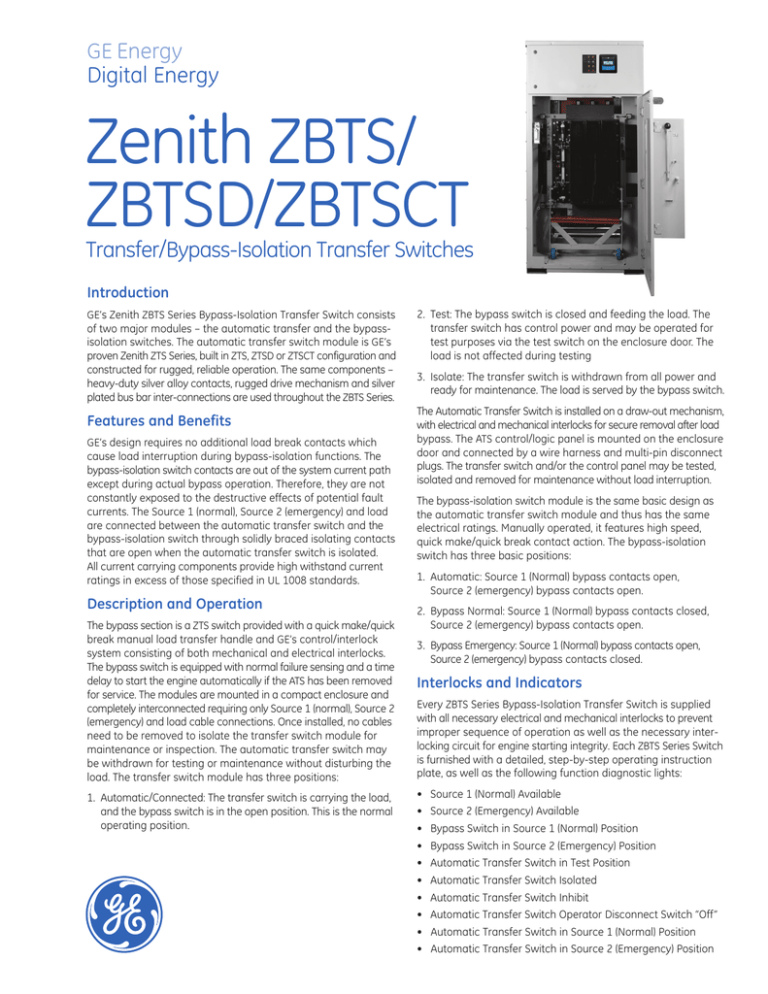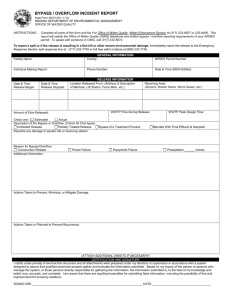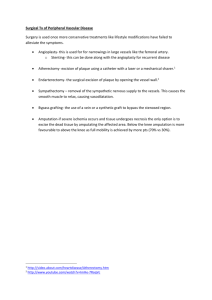
GE Energy
Digital Energy
Zenith ZBTS/
ZBTSD/ZBTSCT
Transfer/Bypass-Isolation Transfer Switches
Introduction
GE’s Zenith ZBTS Series Bypass-Isolation Transfer Switch consists
of two major modules – the automatic transfer and the bypassisolation switches. The automatic transfer switch module is GE’s
proven Zenith ZTS Series, built in ZTS, ZTSD or ZTSCT configuration and
constructed for rugged, reliable operation. The same components –
heavy-duty silver alloy contacts, rugged drive mechanism and silver
plated bus bar inter-connections are used throughout the ZBTS Series.
Features and Benefits
GE’s design requires no additional load break contacts which
cause load interruption during bypass-isolation functions. The
bypass-isolation switch contacts are out of the system current path
except during actual bypass operation. Therefore, they are not
constantly exposed to the destructive effects of potential fault
currents. The Source 1 (normal), Source 2 (emergency) and load
are connected between the automatic transfer switch and the
bypass-isolation switch through solidly braced isolating contacts
that are open when the automatic transfer switch is isolated.
All current carrying components provide high withstand current
ratings in excess of those specified in UL 1008 standards.
Description and Operation
The bypass section is a ZTS switch provided with a quick make/quick
break manual load transfer handle and GE’s control/interlock
system consisting of both mechanical and electrical interlocks.
The bypass switch is equipped with normal failure sensing and a time
delay to start the engine automatically if the ATS has been removed
for service. The modules are mounted in a compact enclosure and
completely interconnected requiring only Source 1 (normal), Source 2
(emergency) and load cable connections. Once installed, no cables
need to be removed to isolate the transfer switch module for
maintenance or inspection. The automatic transfer switch may
be withdrawn for testing or maintenance without disturbing the
load. The transfer switch module has three positions:
1. Automatic/Connected: The transfer switch is carrying the load,
and the bypass switch is in the open position. This is the normal
operating position.
2. Test: The bypass switch is closed and feeding the load. The
transfer switch has control power and may be operated for
test purposes via the test switch on the enclosure door. The
load is not affected during testing
3. Isolate: The transfer switch is withdrawn from all power and
ready for maintenance. The load is served by the bypass switch.
The Automatic Transfer Switch is installed on a draw-out mechanism,
with electrical and mechanical interlocks for secure removal after load
bypass. The ATS control/logic panel is mounted on the enclosure
door and connected by a wire harness and multi-pin disconnect
plugs. The transfer switch and/or the control panel may be tested,
isolated and removed for maintenance without load interruption.
The bypass-isolation switch module is the same basic design as
the automatic transfer switch module and thus has the same
electrical ratings. Manually operated, it features high speed,
quick make/quick break contact action. The bypass-isolation
switch has three basic positions:
1. Automatic: Source 1 (Normal) bypass contacts open,
Source 2 (emergency) bypass contacts open.
2. Bypass Normal: Source 1 (Normal) bypass contacts closed,
Source 2 (emergency) bypass contacts open.
3. Bypass Emergency: Source 1 (Normal) bypass contacts open,
Source 2 (emergency) bypass contacts closed.
Interlocks and Indicators
Every ZBTS Series Bypass-Isolation Transfer Switch is supplied
with all necessary electrical and mechanical interlocks to prevent
improper sequence of operation as well as the necessary interlocking circuit for engine starting integrity. Each ZBTS Series Switch
is furnished with a detailed, step-by-step operating instruction
plate, as well as the following function diagnostic lights:
• Source 1 (Normal) Available
• Source 2 (Emergency) Available
• Bypass Switch in Source 1 (Normal) Position
• Bypass Switch in Source 2 (Emergency) Position
• Automatic Transfer Switch in Test Position
• Automatic Transfer Switch Isolated
• Automatic Transfer Switch Inhibit
• Automatic Transfer Switch Operator Disconnect Switch “Off”
• Automatic Transfer Switch in Source 1 (Normal) Position
• Automatic Transfer Switch in Source 2 (Emergency) Position
Application Notes:
ZBTS & ZBTSD Model, Dimensions and Weights
NEMA 1 Enclosed
Ampere
Rating
Poles
100, 150
225, 260
400
Weight
Height
(A)
Width
(B)
Depth
(C)
Reference
Figure
Open
Type
NEMA 1
2, 3
4
83 (211)
83 (211)
30 (76)
30 (76)
31 (79)
31 (79)
A
310 (141)
380 (173)
770 (350)
840 (322)
600
3
4
90 (229)
90 (229)
36 (91)
40 (102)
28.25 (72)
28.25 (72)
660 (299)
770 (349)
1220 (533)
1365 (619)
800, 1000
1200
3
4
90 (229)
90 (229)
40 (102)
46 (117)
28.25 (72)
28.25 (72)
765 (347)
910 (413)
1355 (615)
1570 (712)
1600, 2000
2600
3
4
80 (2023)
80 (2023)
40.6 (1031) 64.6 (1640)
46.1 (1171) 64.6 (1640)
3000
3
4
80 (2023)
80 (2023)
40.6 (1031) 64.6 (1640)
46.1 (1171) 64.6 (1640)
4000
3
4
90 (229)
90 (229)
47.5 (121)
54 (137)
81 (206)
81 (206)
B
C
D
Application
Notes
1–9
1978 (897) 4044 (1835)
2275 (1032) 4431 (2010)
1 – 7, 10
2572 (1166) 4456 (2021)
3049 (1383) 4977 (2258)
1 – 7,
10 - 12
4310 (1955) 4660 (2113)
5510 (2499) 5860 (2658)
1 – 7,
10 – 11
ZBTSCT Model, Dimensions and Weights
NEMA 1 Enclosed
Ampere
Rating
Poles
100, 150
225, 260
400, 600
Height
(A)
Width
(B)
Depth
(C)
3
4
90 (229)
90 (229)
36 (91)
40 (102)
28.25 (72)
28.25 (72)
800, 1000
1200
3
4
90 (229)
90 (229)
40 (102)
46 (117)
28.25 (72)
28.25 (72)
1600, 2000
2600
3
4
80 (2023)
80 (2023)
40.6 (1031) 64.6 (1640)
46.1 (1171) 64.6 (1640)
3000
3
4
80 (2023)
80 (2023)
40.6 (1031) 64.6 (1640)
46.1 (1171) 64.6 (1640)
3
4
90 (229)
90 (229)
47.5 (121)
54 (137)
4000
C
B
14"
C
B
81 (206)
81 (206)
Weight
Reference
Figure
B
C
D
NEMA 1
730 (331)
840 (381)
1280 (581)
1385 (628)
1–8
835 (379)
980 (444)
1435 (651)
1640 (744)
1–9
Metric dimensions (cm) and weights (Kg) shown in parenthesis
adjacent to English measurements in inches and pounds.
2.
Includes 1.25" door projection beyond base depth. Allow a
minimum of 3" additional depth for projection of handle,
light, switches, pushbuttons, etc.
3.
All dimensions and weights are approximate and subject to
change without notice.
4.
Special enclosures (NEMA 3R, 4, 4X, 12, etc.) dimensions and
layout may differ. Consult the GE factory for details.
5.
Bypass Model product can not be ordered with inverted style.
6.
Special lug arrangements may require different enclosure
dimensions. For certified drawings, contact the GE factory.
7.
Packing materials must be added to weights shown. Allow 15%
additional weight for cartons, skids, crates, etc.
8.
Add 4" in height for removable lifting lugs.
9.
ZBTS(D) 600-1200A & ZBTSCT 100-1200A standard configuration
is top entry. 14” rear adapter bay required for bottom entry.
Consult the GE factory for details.
10. Bypass switch weights for 1600 - 4000 amp units vary up to 10% based
on connections variations. Weights shown are for estimation only.
11. 3000 amp depth dimension shown is standard. Depending on your
cable/conduit requirements you may desire a deeper enclosure.
Consult the GE factory for further details.
12. Lug adapters for 3000-4000 amp limits may be staggered length
for ease of entrance. Consult the GE factory for details.
AL-CU UL Listed Solderless Screw-Type
Terminals for External Power Connections
Normal, Emergency & Load Terminals
1978 (897) 4044 (1835)
2275 (1032) 4431 (2010)
Switch Size Amps
1 – 7, 10
2572 (1166) 4456 (2021)
3049 (1383) 4977 (2258)
100-225
1–7
10 - 12
4380 (1986) 4730 (2145)
5580 (2531) 5930 (2689)
B
C
Application
Notes
Open
Type
1.
B
C
Cables/Pole
ZBTS & ZBTSD
1
Wire Ranges
#6 to 250 MCM
260
1
#4 to 600 MCM
400
1
#4 to 600 MCM
600
2
#2 to 600 MCM
800 / 1000 / 1200
4
#2 to 600 MCM
1600 / 2000 / 2600 / 3000 / 4000
*
*
ZBTSCT
A
See
Note
9
A
A
100-400
1
#4 to 600 MCM
600
2
#2 to 600 MCM
800 / 1000 / 1200
4
#2 to 600 MCM
1600 / 2000 / 2600 / 3000 / 4000
*
*
A
* Line and load terminals are located in rear and arranged for bus bar connection.
* Terminal lugs are available at additional cost. Contact the GE factory for more details.
Figure A
Figure B
Figure C
Figure D
ZBTSD Model – Delayed Transition Transfer/Bypass-Isolation Switches
The ZTSD Delayed Transition Transfer Switch with a timed center-off position is available in a
bypass configuration. The ZBTSD Model Bypass incorporates the features of both the ZBTS
Bypass-Isolation Switch and the ZTSD unit for transfer of large motor loads, transformers,
UPS systems or load shedding to a neutral “Off” position. Reference the ZTSD unit features
and operation discussion for more details.
ZBTSCT Model – Closed Transition Transfer/Bypass-Isolation Switches
The ZTSCT Closed Transition Transfer Switch may be applied with a bypass-isolation switch for
the utmost in reliability and versatility. The ZBTSCT Model provides the ability to withdraw the
transfer switch unit for maintenance or inspection. Reference the ZTSCT unit features and
operation discussion for more details.
Electrical Ratings
Performance Features
•
Ratings 100 to 4000 amperes
•
•
2, 3 or 4 Poles
•
High close-in and withstand capability
•
Open type, NEMA 1, 3R, 4, 4X and 12
•
•
Available with Zenith ZTS, ZTSD and ZTSCT Series
Automatic Transfer Switch
Temperature rise test per UL 1008 conducted after overload
and endurance tests exceeds UL requirements
•
•
Bypass and transfer switch have identical ratings
•
Suitable for emergency and standby applications on all
classes of load, 100% tungsten rated through 400 amps
Available in ZBTS (utility-generator), ZBTSU (utility-utility), ZBTSG
(generator-generator) and ZBTSM (manual) configurations;
models include standard, delayed and closed transition
Design and Construction Features
•
UL 1008 listed at 480 VAC
•
•
CSA C22.2 No. 178 certified at 600 VAC
Automatic transfer switch is located on a draw out
mechanism to facilitate maintenance
•
Emergency power systems can be electrically tested
without disturbing the load
•
Power cables do not have to be disconnected to
remove the transfer switch
•
Bypass to any available source
with the automatic transfer
switch removed
•
Engine start circuit maintained during bypass operation;
normal power failure causes engine start contact closure
even with the ATS removed
•
Diagnostic lights and detailed instructions for simple
step-by-step operation
•
Mechanical and electrical interlocks ensure proper
sequence of operation
•
Bypass switch contacts are closed only during the
bypass-isolation operation
•
Silverplated copper bus interconnection of the transfer
and bypass switches on all sizes
Load is not interrupted during bypass operation
Assembled in the USA
UL 1008 Withstand and Closing Ratings
•
Please refer to GE Publication TB-1102
GE Energy – Digital Energy
830 W 40th Street, Chicago, IL 60609 USA
800 637 1738 www.gepowerquality.com
Information subject to change without notice. Please verify all details with GE.
© 2010 General Electric Company All Rights Reserved
PB-5068 (10/10)




